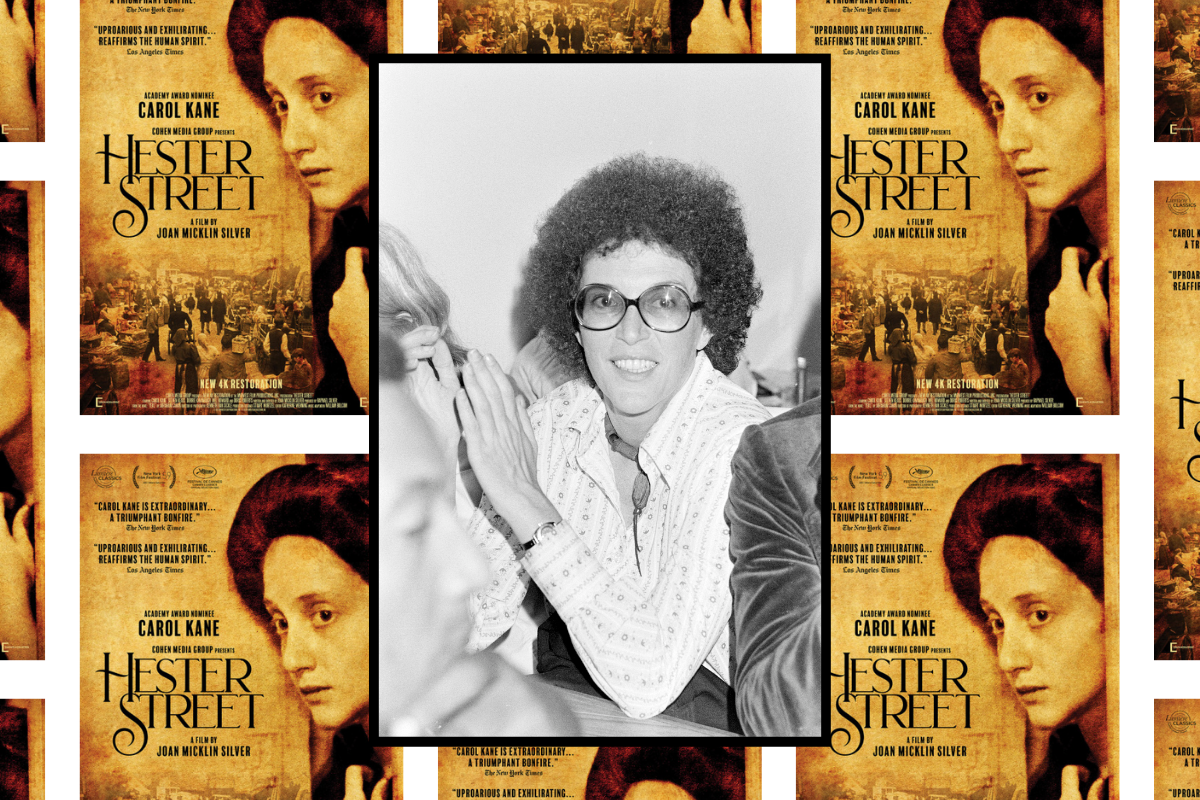I cannot count the number of times “Hester Street,” my mom’s 1975 Oscar-nominated film starring Carol Kane, now a fixture in the motion picture canon, almost never happened.
“Hester Street” had everything stacked against it at the time — a woman was at the helm, its budget was small, it was in black and white, and it was about Jews. And yet, next month I will join my family, less than a mile from the White House, in the nation’s most prominent Jewish theater, Theater J, for the world premiere of the theatrical adaptation of “Hester Street.”
Now in my 60s and a mother of my own adult children, witnessing “Hester Street” rebirthed for the stage and a new, modern audience reminds me of the lessons our mom, Joan Micklin Silver, gave us.
My mother’s fascination with the Jewish immigrant experience was informed by her growing up and watching her own parents. She used to tell me and my two sisters the story of her father, who died when she was only 17. Like many immigrants, his education had been interrupted. However, he was an incessant reader and a very bright man. She would talk about his dynamic resourcefulness and unbending perseverance to provide and make a better life for his family.
When he and my grandmother arrived in Omaha from Russia, he went around collecting timber on the street and pedaled it door-to-door. He turned this into a thriving lumber company called Micklin Lumber. I know this left a real impression on my mother.
“Hester Street” was my mother’s feature length directorial debut. She, alongside my father, Raphael Silver, who produced it, took a story adapted from Abraham Cahan’s 1896 novella, “Yekl: A Tale of a New York Ghetto,” and conquered countless hurdles to bring it to the screen. The story follows Gitl, a young Russian mother who arrives in the Lower East Side with her son to reunite with her husband who had immigrated before. As the film progresses, we watch Gitl find her way and come to clarity about the chasm between her and her husband.
My sisters and I remember hearing about all the challenges our parents faced in making this film. The studios told her there would never be a market for “Hester Street.” Then, once the film was financed, thanks in large part to our dad’s incredible business sense, getting it distributed proved equally difficult. So Dad started his own film distribution company and navigated a whole new business terrain to get this low-budget, black and white, wonderful movie into the world.
I remember when the film was finally released in theaters. It was pouring rain. Our parents were so worried, afraid no one would want to go out in such weather. But when they arrived at the theater for the first showing, there was actually a line around the block — everyone braving the downpour to see “Hester Street.”
“Who wants to watch a film about Jews?” As it turns out, everyone!
In crafting a story so specific to an Ashkenazi Jewish family in New York City, my mother captured the universality of the immigrant experience. One that is felt in all cultures and people around the world as they combine bravery, hard work, unbending determination and a certain amount of luck to succeed in their goals.
It’s a story about what it means to be religious, to be a woman in America, to be in love. It is the story of the fierce protection a mother has for a child while facing the unknown. Themes that resonate with everyone — immigrant or not.
Our parents believed they could do anything together and they buoyed each other. Dad worked to solve business problems, while Mom was bursting with creative energy. Their drive and resolve was both inspiring and instructive for me and my sisters, and now to our children. As our father used to say, “Only yesses are final.” In other words, keep going until you find your way to “yes.”
And now the film has a new life breathed into it by an incredible creative team bringing it to the stage, including original music and songs by Broadway composer Joel Waggoner. When Michael Rabinowitz originally approached my mother back in 2015 with the idea of adapting her film to stage, she was thrilled. Before her passing in 2020, she worked with playwright Sharyn Rothstein in the early stages of development. And, when the team was looking for a composer, she offered notes about the music.
Mom loved music. When we were little kids, she would pick up her guitar and teach me and my sisters to sing in harmony. She had a wonderful time directing a musical review of Randy Newman’s incredible music, and with Julie Boyd, she conceived and directed a musical review called “A… My Name is Alice,” which shared the stories of women of all ages and from all walks of life. The stories of women and their struggles and triumphs were close to her heart. She would be absolutely thrilled to hear the incredible music that Waggoner has created to bring “Hester Street” to the musical stage.
The lasting impact of the story, and its ability to continue to speak to new audiences, is truly a testament to my mother’s legacy and the grit of the immigrant experience. Together with our father, she managed to create an incredible story of perseverance, tenacity and triumph under countless odds. A lesson for us all.








